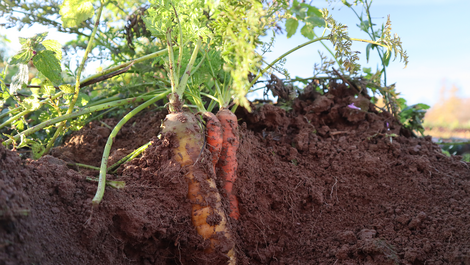Fertile soils with a diverse microbiome are an essential prerequisite for providing people with healthy and nurturing food. In promoting and enabling sustainable food systems, biodynamic farming supports the cause of World Food Day on 16 October 2025 which has the theme ‘Hand in Hand for Better Food and a Better Future.’
Jasmin Peschke, head of Nutrition in the Section for Agriculture at the Goetheanum says that “Rice, sweetcorn and wheat provide more than 50 percent of people‘s calorie intake worldwide.” While this sounds like a solid basic supply, the nutritionist points out that “these three grains are largely grown in large-scale monocultures with high pesticide use. The lack of diversity jeopardizes the resilience of food systems and soils – and consequently human health.”
She argues that “reducing cultivation to a few crops depletes the soil and decreases biodiversity and therefore food quality. If people‘s diet also lacks diversity, their health is at risk. While there is a wide range of foods, most of them contain additives, which in turn are made from these three types of grain.”
Working sustainably without the use of synthetic chemical fertilizers and pesticides contributes to preserving and fostering diverse soil life. In practising this, biodynamic agriculture promotes humus formation and biodiversity in and above the soil. “If the soil microbiome is diverse, the food also contains a rich bacterial flora with hardly any pathogens – in contrast to conventionally produced products,” says Jasmin Peschke and refers to studies such as that by Birgit Wassermann et al (2019). This quality continues through food intake, since the human gut microbiome is stimulated in a way that promotes human immunity and health.
Jasmin Peschke sees biodynamic food systems, from cultivation and processing to social integration, as a solution to the concern expressed by the UN Food and Agriculture Organization‘s World Food Day 2025 which has the theme ‘Hand in Hand for Better Food and a Better Future.’ Peschke sees this as an urgent requirement since people are not eating well. The number of starving people, she says, rises as steadily as that of people who overeat and she is convinced that “food can be the bridge to human health and to agriculture.”
English by Margot M. Saar
Study An Apple a Day: Which Bacteria Do We Eat With Organic and Conventional Apples? by Birgit Wassermann, Henry Müller and Gabriele Berg Web
